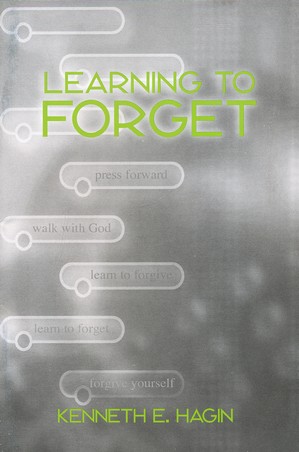Forgiveness is a choice. It releases feelings of hate, disillusionment, frustration and bitterness so as to move forward in life.
Forgiving those who have wronged you can be so challenging. Forgiveness helps maintain emotional well-being. Its significance cannot be emphasised enough. Keeping grudges and holding resentment can take toll on emotions, resulting in increased anxiety levels and, in some instances, leads to depression.
Letting go of the weight of grievances creates a healthier and more positive mental state.
Forgiveness is an act of will.
We may not always feel like we want to forgive. When we forgive, we also let go of the hurt and anger that comes with holding onto a grudge. We are choosing to replace bad feelings with positive ones. Even though this may be an action you have decided to take more than once in your life, it’s important to remember that forgiveness is an option and a natural response in certain situations.
Forgiveness is a continuous process.
It requires both time and effort to learn the art of forgiving someone. The initial stage of this process involves recognising that forgiveness doesn’t always imply reestablishing trust in the individual. Still, it can help put the situation behind you so you can move on without resentment and anger.
Forgiveness is also different from forgetting what happened. Forgiving someone without ever overlooking their actions or words against you is possible. However, suppose your goal is complete forgiveness with no emotional attachment left over from what happened. If that is the case, it may be best for you not to think about those events as much as possible after forgiving them. The reason is that the feeling of anger doesn’t come back up later on down the road, once again causing pain inside yourself whenever you think back on those memories despite having found peace with letting go of all anger associated with them already.
Let go of any ill feelings towards another person who hurt us before would be figuring out how exactly these processes work within ourselves (which will differ depending upon the person). This involves taking an honest look at ourselves, too: What did they do wrong? Why did they do these things? How did they affect others’ lives besides just mine?”

Extending forgiveness doesn’t mean condoning hurtful behaviour.
Forgiveness does not entail erasing from memory or rationalising what transpired. You don’t have to reconcile with the person or people who hurt you.
The critical thing is that forgiveness means letting go. You can move on from the hurtful situation without allowing it to control your life or keep you from enjoying new relationships in the future.
Forgiving someone else can help heal you, too.
It may take time to heal from the hurt and betrayal experienced. Maybe someone close to you did something hurtful, or perhaps a stranger accidentally did something that caused pain. Either way, forgiving someone else can help heal you, too.
It is energy draining and prevents self-healing of the body or mind. When we consider forgiveness from a different point of view, we can understand the challenges our bodies face in healing when we hold onto anger about some past event.
I often turn inward and work on myself to aid in my forgiveness process. I dedicate time to reading books related to the subject matter.
Experience peace of mind and heart.
When you can’t forgive someone who hurt or wronged you, it’s like carrying a heavy load weighing your heart. The weight of the load keeps you from feeling light and free.
For example, If someone slandered my name three years ago. The thought of forgiving them would come up every time I think about them, making me angry again! So what do I do? Open myself up to forgiving them so that I can move forward instead of reliving those painful memories repeatedly!
Practical Steps to Forgiveness
Reflecting on Personal Growth
Forgiveness often involves looking inward and reflecting on the experience. Identify the lessons learned from the situation, recognising the personal growth that has taken place. This step helps you better understand your situation and recognise the offence’s circumstances. Challenges and hardships possess the power to ignite growth and change.
Communication and Closure
Effective communication plays a role in the process of forgiveness. Discover constructive methods to express feelings and emotions like having conversations, writing a letter (even if it remains unsent) or actively participating in therapeutic dialogues. Communicating emotions allows for a clearer understanding of your perspective and helps the other party comprehend the impact of their actions.
Forgiveness often involves seeking resolution and closure. Sometimes, it may not be feasible or wise to reconcile. Finding closure can still be attained through discussions or symbolic gestures. This step involves discovering a sense of closure and inner peace regardless of what happens during interaction with the person who has hurt you.
Setting Boundaries
Forgiveness should not be misunderstood as giving up on setting boundaries. Once you have forgiven someone, establishing and communicating boundaries is essential to safeguard your well-being. This may involve placing limits on interactions or specifying expectations for future behaviour.
Maintaining boundaries is essential for ensuring a feeling of safety. Setting boundaries is not only about the past but also about safeguarding future well-being.
Conclusion
Forgiving someone who has caused you pain can be quite challenging, to be honest.
It takes time and effort to heal from pain and move on with life. But healing is possible.
We actively participate in our healing process by reflecting on personal growth, embracing the lessons learned from adversity, and engaging in effective communication for closure. Establishing healthy boundaries post-forgiveness becomes a crucial step in safeguarding our well-being and ensuring a future free from recurring pain.
As we conclude this guide, may the lessons shared inspire courage, empathy, and a commitment to the transformative journey of forgiveness, unlocking the doors to a life filled with peace, compassion, and enduring joy.














0 Comments